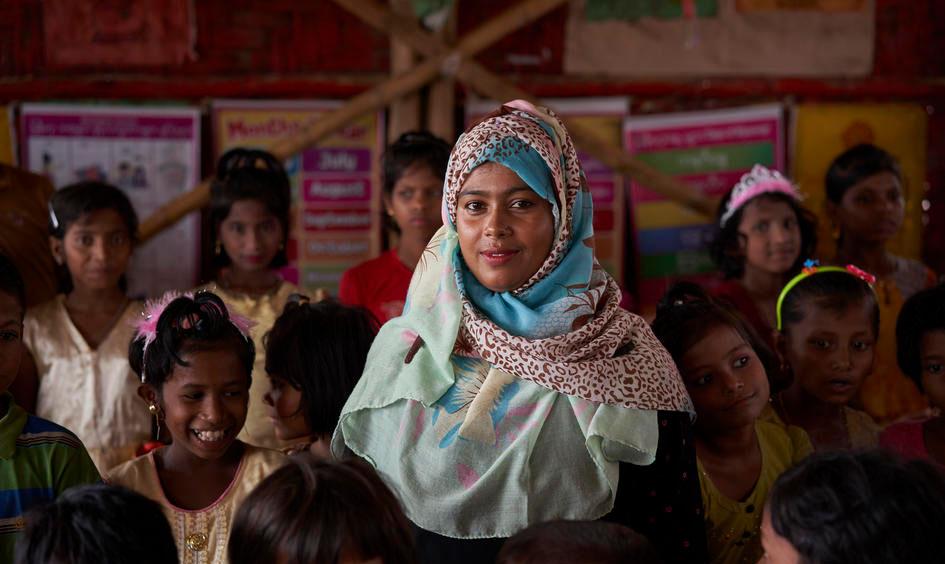Contact details
Submitted by: Save the Children International - James Campbell, Specialist, Refugee Education and UN Partnerships
Website: savethechildren.net/
Introduction to the project
Country
Global
Duration
2017 - ongoing
Description
Return to Learning is an education and advocacy initiative designed for initial humanitarian response and focused on getting children back to learning within three months of forced displacement.
Project aims
The objectives of the Return to Learning program are:
- Increase access to a safe spaces that support improved learning and wellbeing outcomes for out-of-school children
- Strengthen capacity of communities to provide education for displaced children
- Build the evidence base around how to use assessment results to better support learning and wellbeing needs of children
- Increase international support for and country capacity to advocate for forcibly displaced children’s right to education
GCR Objective 1: Ease the pressures on host countries.
- This project supports faster access to education during the first phase of humanitarian response, and increased school readiness in protracted settings, benefitting both refugees and displaced populations, as well as the host community.
Resources used
Facilitating elements such as laws and policies vary from location to location. Flexible and private funding has enabled us to pilot Return to Learning in several countries and to roll out the entire program in Lebanon.
Partners
- Partners vary from location to location
Challenges and how they were overcome
Challenges:
Children who have completed the Return to Learning program need to be transitioned into formal schools or other non-formal education programs, such as an Accelerated Learning Program. However, a major issue pertains to the lack of sufficient space and resources to absorb displaced children into formal schools. Given that many refugee children have been out of school for varying amounts of time, remedial support is often necessary to prepare them to be successful in formal schools. Financial barriers such as school fees also make it difficult for refugee children to enrol in formal schools given the limited livelihood opportunities their families often encounter. Greater advocacy and political support is necessary to adequately allocate resources required to enrol refugee children in school.
There have also been challenges with closing space for civil society to influence government policy.
How challenges were overcome:
We have provided children with access to remedial support to improve their school readiness and wellbeing. Through engaging children in activities that develop their social emotional competencies and further their foundational literacy and numeracy skills, we prepare children to be successful in non-formal education programs and/or formal schools. We have worked with various local authorities in several contexts to help clarify the various pathways for entry into the formal system, and ensure that non-formal education programs are recognized. We support children who complete Return to Learning to seamlessly transition into other education programs while continuing to advocate for increased enrolment in the formal system.
Results of the Good Practice
- Over 600 refugee children in Lebanon participated in Return to Learning in 2019. Many of them had never previously attended school or had been out of school for several years. Data showed modest positive learning outcomes associated with Return to Learning participation in literacy, numeracy, and social emotional learning as compared to out of school children who did not participate in the short-term program.
- We translated and contextualized the Return to Learning activity toolkits to serve 4,000 internally displaced children in Nigeria. After finishing the toolkits, these children were able to begin their basic literacy, non-formal education program off on a stronger foot as compared to their peers who did not participate in the Return to Learning program.
- In 2018, we successfully pilot tested Return to Learning components with more than 1,800 refugee children in asylum centers, refugee camps and child-friendly spaces in Serbia, Spain, Uganda and Kenya.
Next steps
In 2020 Return to Learning will engage over 5000 out-of-school displaced children in Lebanon, Nigeria and Uganda to increase their readiness before entering government-supported non-formal education programs. In Colombia, we will roll out Return to Learning to support migrant children in formal schools who require additional academic and social emotional support to retain them in school.


